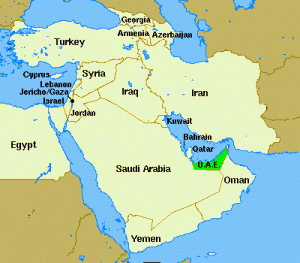No Emirati men have enrolled for degree courses in teaching at United Arab Emirates University in the past three years, the Education Minister told the FNC yesterday.
“It is a big challenge,” said Humaid Mohammed Obaid Al Qutami. “We have been recently working with helping pupils to go into education. Hopefully in the next phase we will see an increase in male teachers.”
The minister was responding to questions from council member Musabah Al Kitbi (Sharjah), who said that of 9,000 Emirati teachers registered with the ministry, only 600 (7 per cent) were men.
“This is an old problem,” he said. “I believe there has been a failure to convince men to enter the field of education.”
He said the complete absence of new trainee teachers raised “a thousand question marks”.
“What does it mean? If the minister sees the question as normal, I, as a local, see the issue as very, very, very important.”
He suggested a bursary of about Dh5,000 a month for male trainee teachers, to be repaid if they later chose not to enter the profession.
Mr Al Qutami promised that the the ministry would “work on it” alongside other programmes.
Shaikha Eissa (Umm Al Quwain), a head teacher, raised the issue of changing school hours in winter to make the journey there safer for children.
The minister was unpersuaded. “Any change will cause problems,” he said. The school day matched government working hours, which helped parents to organise the school run, and a change would make their lives harder, he said.
Miss Eissa said the timings obliged parents to leave home before 6am, which in winter coincided with Fajr prayers. The alternatives – buses and private drivers – were not as safe, she said.
“Then you have a cluster of traffic problems. In 2010, four children died during school rush hour, and there were 20 accidents.”
She said the school rush hour coincided with the peak time for labourers going to work. And while darkness and dangerous driving were a problem in the winter, summer held its own dangers, she said, with pupils fainting and suffering asthma attacks during the morning outdoor assembly.
While workers have a midday break during the summer, schoolchildren’s needs should not be overlooked.
The minister said seasonal hours had been considered and found to offer little advantage.
He said the ministry was working on ways of air conditioning schools’ outside spaces. “We are keen to develop an attractive atmosphere to deal with problems with ventilation and sewage,” he said.
He agreed that the issue of hours would be revisited.
After the session, the minister distributed the results of research into the three-term system, which was introduced to schools in September 2010 and had caused some consternation among members.
The study found that spreading work over three terms had a positive effect on pupils, and improved their average grades.

